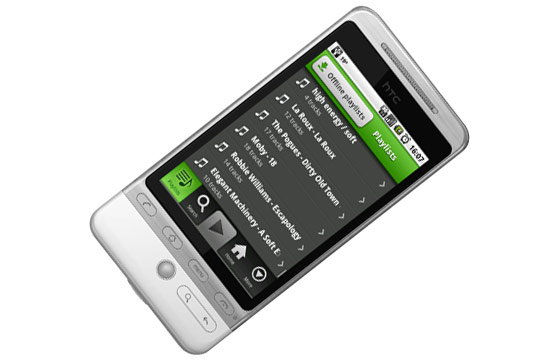
The rosy new world of streaming, on-demand music—where we can summon “any” song directly to our desktops, via services like Spotify, MOG, or Rhapsody—has long felt inevitable. A decade ago, music nerds were already making jokes about lazily downloading albums they already owned: We were happy to sacrifice sound quality, or even commit criminal acts, just to avoid standing up and looking for a CD. Now we have huge chunks of the world’s recorded music a few clicks away, with no issues of ownership, storage space, or legality involved. It’s a nice luxury. It’s also deeply changing how we relate to what we’re listening to, in ways we can so far only grope at.
There are the rituals, for one thing. The youth of previous decades have fond memories of hand-labeling cassette mixes or scoping out the record shelves of party hosts; youth of today can eventually feel the same about, say, those ecstatic binges of discovery that keep you up all night listening to Korean pop. Physically handling your record collection is like wandering a neighborhood you know by heart, bumping into unexpected friends; diving into the massive catalogue of streaming music is more like being able to teleport to any city on the planet, an experience as daunting as it is freeing. Owning music is a kind of intimacy—not just online-dating your favorite records, but literally moving in with them—which leads you to think that “good taste” is about committing to the right things. In the streaming world, taste is about being intrepid, knowing paths through the wilds and byways of different eras and genres.
The biggest difference, though, is that we’re being enlisted to broadcast our relationships with music to everyone else around us. The streaming services aren’t just giving us the means to teleport around Planet Music; with their social-media widgets and public playlists, they’re encouraging us to be missionaries and evangelists. Mark Zuckerberg, in true Zuckerbergian fashion, thinks of announcing your listening habits via Facebook’s Spotify integration (“Someone You Disliked in High School listened to Skrillex”) as an opportunity for users to “express themselves.” Spotify founder Daniel Ek cheerfully describes “a world where music is really about you listening to music and your friends discovering it from you.” You’d think it could be at least partly about musicians expressing themselves, but we’re being prodded onstage right alongside them.
I am, for the record, a huge fan of the social side of music—the scenes and arguments, the ways we use songs to sort out what types of people we’re interested in being. (Teenagers don’t draw band logos on their possessions just to express approval of a particularly good harmony line.) But that side of music has always included a whole lot of cross-talk, judging, and exasperation, and it can take something away from the purer experience of just enjoying the music you enjoy, in roughly the way watching cable-news debates about your love life might dampen your enthusiasm for romance. A note of caution might be in order: Be careful that you, your friends, your co-workers, your imaginary audience, and that aunt who leaves strange comments on all your Facebook pictures don’t get so tangled in one another’s musical business that you wind up ruining music for one another.
Have good intel? Send tips to intel@nymag.com.